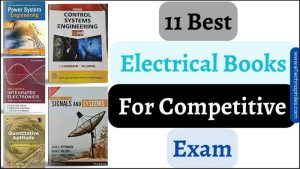Last updated on March 28th, 2024 at 05:37 pm
What’s the toughest thing about preparing for competitive exams? It’s finding the right reference book. If you are preparing for any electrical engineering competitive exams then you know what we are talking about.
We just made your work a little lighter, for we have prepared a subject-wise list of the best electrical engineering books for competitive exams. So, just focus on your studies by selecting the perfect book from the list below.
List of the 11 Best Electrical Engineering Books for Exams
Best for Power System – Power System Engineering by I. Nagrath and D. Kothari
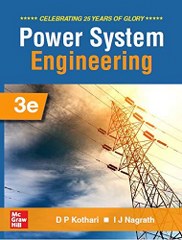
Kindle: ₹ 627.96
Paperback: ₹ 660
Power System Engineering by I. Nagrath and D. Kothari gives a detailed explanation of all the important concepts of Power Systems in electrical engineering. These include transmission of power, distribution of power, stability, analysis of systems, switchgear, protection, etc.
The book also covers a number of case studies that illustrate the application of the concepts presented in the previous chapters. With its rich collection of worked examples, this is a perfect book for candidates preparing for GATE, IES, IAS, and AMIE.
Pros:
- MCQs based on each chapter are provided in the book that will help you prepare for your competitive exam.
Cons:
- Solutions key to the practice questions given in the book is difficult to find.
Best for Electrical Machines – Electrical Machinery by P. S. Bimbhra
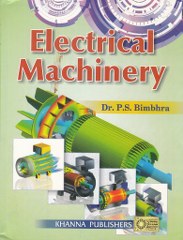
Kindle: ₹ 599
Hardcover: ₹ 2500
Paperback: ₹ 390
If you are looking for a reference book on Electrical Machines then Electrical Machinery by P. S. Bimbhra is your best option. The most common types of rotating electrical machine types (motors, generators) are covered comprehensively in this book. The author provides clear explanations of how these machines work, along with detailed illustrations to help readers visualize the concepts.
The book also explains the concept of electromechanical energy conversion principles in a separate chapter, which is not found in other books.
Pros:
- The language of the book is easy to understand. An average can easily comprehend its contents.
Cons:
- Some readers may feel difficult to understand the concepts of synchronous machines.
Best for Control System – Control Systems Engineering by I.J.Nagrath and M. Gopal
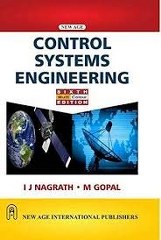
Kindle: —
Paperback: ₹ 485
Control Systems Engineering by I.J.Nagrath and M. Gopal has A to Z topics on Control Systems. The book begins with an overview of feedback control fundamentals and classical control design before moving on to discuss modern control design techniques. Covering topics such as root locus analysis, PID controllers, and frequency-domain methods, the authors provide readers with a solid understanding of the principles of control theory.
In addition, the book includes a variety of worked examples and end-of-chapter exercises to help readers practice what they have learned. That’s why this book is perfect for undergraduate students as well as postgraduate students looking to learn all about control systems.
Pros:
- The book also has an appendix in MATLAB with all the necessary mathematical information required to study control systems.
Cons:
- If you are a first-year electrical engineering student then this book might be a bit advanced for you.
Best for Analog & Digital Electronics – Integrated Electronics: Analog And Digital Circuits And Systems by Christos C. Halkias
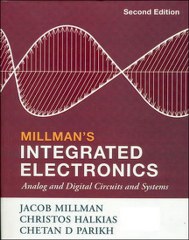
Kindle: —
Paperback: ₹ 495
The book Integrated Electronics: Analog And Digital Circuits And Systems is a classic in the field of Analog & Digital Electronics. Throughout the book, numerous examples are used to illustrate key concepts, and each chapter includes a set of problems designed to test and reinforce understanding.
With its well-balanced coverage of both analog and digital circuits, this textbook is ideal for students preparing for the GATE examination.
Pros:
- The language of the book is so simple that even amateurs can easily understand the context.
Cons:
- You need to have a pre-understanding of the behaviors of resistors, inductors, and capacitors before reading this book.
Best for Circuit Theory – Fundamentals of Electric Circuits by Charles K. Alexander and Matthew N. O. Sadiku
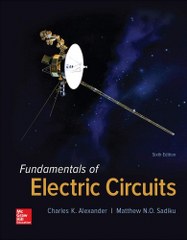
Kindle: —
Hardcover: ₹ 10,100
Fundamentals of Electric Circuits is used as a reference book by students and professors alike. The book covers some basic concepts like resistors, capacitors, inductors, and electricity (current, voltage, and power). As well as some advanced topics like AC circuit analysis (transient and steady state) and semiconductor devices.
Throughout the book, the authors make use of a variety of examples and exercises to illustrate key points which is helpful for the students preparing for competitive exams.
Pros:
- This book has over 468 practice problems with solutions which is very useful for your competitive exam preparation.
Cons:
- Computer tools such as MATLAB, Multisim, PSpice, etc are used in the book to solve electrical circuits. If you are unacquainted with these tools then you find them difficult to understand.
Best for Power Electronics – Power Electronics by P. S. Bimbhra
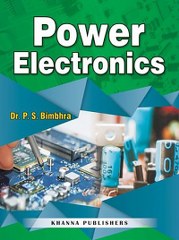
Kindle: —
Paperback: ₹ 599
Power Electronics by P.S. Bimbhra explains the concepts of electricity and magnetism, which are essential for understanding the operation of power electronic devices. The book then discusses the various effects that can be achieved by controlling the flow of electricity, including rectification, inversion, voltage multiplication, and current limiting.
The book also covers the design of power electronic circuits, with a particular focus on switch-mode power supplies. Several students have found this book quite useful due to its versatility.
Pros:
- You will find previous year’s question papers of GATE at the end of this book.
Cons:
- This book does not cover advanced topics of power electronics.
Best for Signals and Systems – Signals and Systems by Oppenheim Alan V., Willsky Alan S., and Nawab S. Hamid
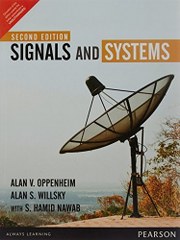
Hardcover: ₹ 12,500
Paperback: ₹ 483
It is seen that Electrical engineering students find Signals and Systems topics to be quite difficult. But with this book, you will find it easy to understand. The book is organized into four parts. The first part provides an introduction to signals & systems concepts. The second part covers analytical methods for signals & systems.
Part three presents an overview of important transforms used in signal processing. And part four addresses key applications in signals & systems. The worked examples are the best part of this book as they prepare you for competitive exams like JRE, GATE, IES, IAS, etc.
Pros:
- You can use this book in conjunction with video lectures of Oppenheim to understand signals and systems in the best possible way.
Cons:
- If you will skip the worked examples in the book you will lose a lot of valuable content.
Best for Electromagnetics – Engineering Electromagnetics by William H. Hayt and John A. Buck
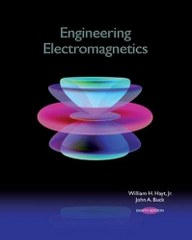
Hardcover: ₹ 4874
Paperback: ₹ 10,920
Engineering Electromagnetics by William H. Hayt and John A. Buck is well-written and clearly organized. It follows an application-based approach with the support of theoretical concepts to teach you Electromagnetic Fields.
This book works hard on explaining to you the concepts of electrostatics with magnetostatics. Whether it be Maxwell’s equations, wave propagation, transmission lines, or antennas, this is the best book source to learn all these concepts.
Pros:
- 700+ solved, drill, and review problems are included as a part of this book.
Cons:
- You need to have your basics cleared before starting advanced concepts from this book.
Best for Measurement & Instrumentation – A Course In Electrical And Electronic Measurements And Instrumentation by A. K. Sawhney
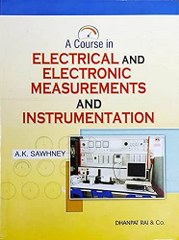
Kindle: —
Paperback: ₹ 595
Measurement is a vital topic in electrical engineering. And with this book, you can grasp all the concepts of the subject pretty easily. The book explains the basics of units and measurements which will also help you while solving problems in other subjects.
It also explains different sensors and transducers used in electronics. A number of helpful appendices present in the book provide additional information on specific topics.
Pros:
- Even if you are a beginner in electrical engineering, you can quickly learn all about measurements from this book.
Cons:
- Not much weightage is given to the instrumentation part in competitive exams. But this part is an important foundation for solving complex examples.
Best for Mathematics – Higher Engineering Mathematics by John Bird

Hardcover: ₹ 9043
Paperback: ₹ 3852
Who isn’t scared of Engineering Mathematics? According to a majority of students, it is the toughest subject in engineering. But why don’t you try Higher Engineering Mathematics by John Bird? The book has ample examples on Integration, Derivation, Calculus, Complex Analysis, Transform Theory, etc that will help you in understanding the concepts better.
Once you master the topics in engineering mathematics, you can pretty easily solve the problems in Signal and Systems, Power Systems, Electromagnetics, and Control Systems.
Pros:
- The book contains 277 practice exercises whose solutions you can find on its companion website.
Cons:
- The book is a little expensive for a single subject.
Best for Aptitude – Quantitative Aptitude For Competitive Examinations by R. S. Aggarwal
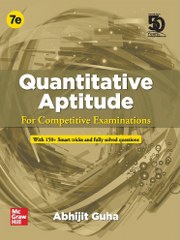
Kindle: ₹ 497.80
Paperback: ₹ 524
Every competitive exam has a part reserved for Aptitude. There are numerous aptitude books available in the market. But our personal favorite is Quantitative Aptitude For Competitive Examinations by R. S. Aggarwal because it includes questions for UPSC, MOSC, GATE, CLAT, JEE, RBR, UGC-NET, MAT, CAT, GMAT, and many more such examinations.
Pros:
- A separate exercise on data sufficiency-type questions is given after each chapter.
Cons:
- No tricks or shortcuts to solve problems are given in the book.
Conclusion – Best Electrical Engineering Books
So these were some of the best Electrical Engineering Books for Competitive Exams. If you think we have left out any important electrical engineering reference book then do let us know in the comments below. Make sure you cover all the topics from these books and practice as many questions as possible to crack the exam easily. Do let us know how it goes!
